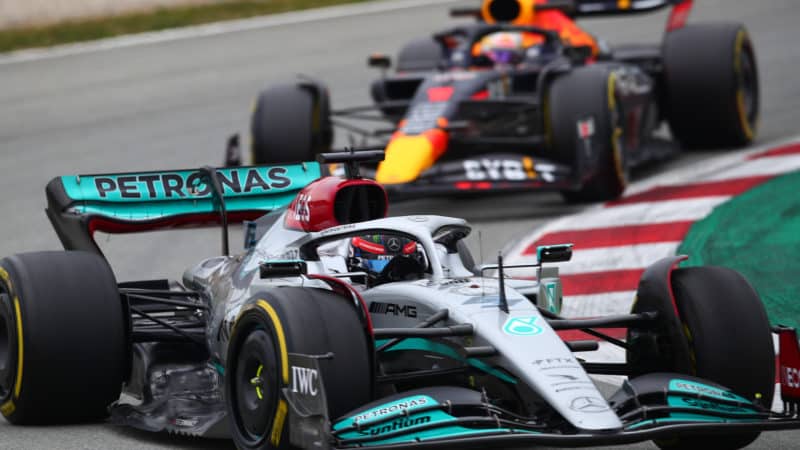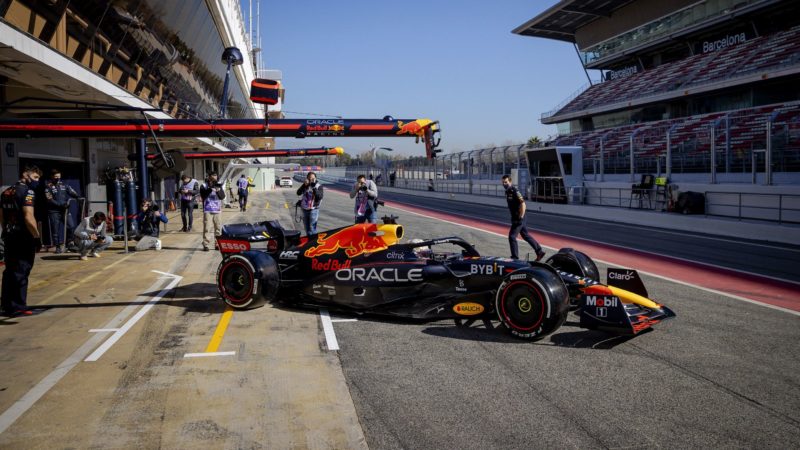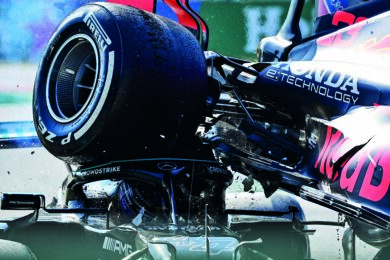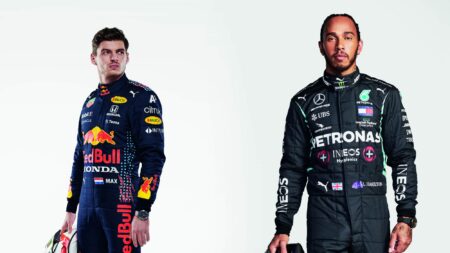Initial driver response to the new era was mostly positive, although the jury remains out on whether F1 has hit its brief of creating more raceable racing cars. Braking distances weren’t any shorter, but jumping to conclusions at a circuit that has rarely been conducive for wheel-to-wheel racing would be rash. So what is Horner’s gut instinct telling him? “Speaking to Max after the first day of running, he was actually complimentary of his ability to follow a car closer. He felt there was less disruption and that’s around a track like Barcelona. Around somewhere like Bahrain overtaking should become more straightforward.”
But we’re still quite some way from ditching the artifice of the drag reduction system (DRS). “I think it will still be required,” says Horner. Because these new cars still have front and rear wings? “Yep, that’s the thing. Until we get rid of those… You see the size of them now as well, they are pretty chunky.”
As for Red Bull’s main man, you won’t be surprised to hear Verstappen is “super-relaxed, super-happy”. “He’s got the monkey off his back having won that first world championship,” says Horner. “In many respects it takes the pressure off him and I think you’ll just see him continue to evolve and grow.”
But while the new champion has been coming to terms with his new status, it’s been a difficult winter for the FIA and its new president Mohammed Ben Sulayem – even before the horrors of current events in Ukraine recalibrated perspectives for all of us. Horner continues to express sympathy for Michael Masi, who has been stood down from his role as race director in the wake of the review into the Abu Dhabi controversy. Christian describes Masi as “a broken guy” in the wake of the unimaginable pressure he’s faced.
“It was harsh,” he says of the decision. “What was disappointing is that since Abu Dhabi there had been very little support for Michael. When you hear his family were receiving death threats… The job of race director is incredibly tough and we were frustrated by an awful lot of decisions last year which we felt went against us. But you’re never going to win in that role and I think it’s unfortunate for Mohammed that he’s had to inherit this situation.
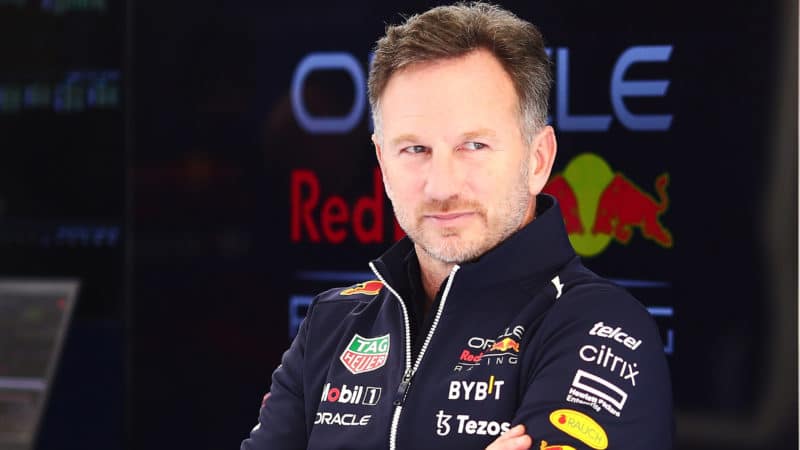
Horner is expecting a close fight
Eric Alonso/Getty Images
“But he’s looking at doing the right thing by bringing in more support and technology. I showed him around the facility here and the operations room that we have at our disposal, as five or six other teams have too, and they [the FIA] have nothing. It’s a shrewd move bringing Herbie Blash back in with all the experience he has. I just thought it was a shame for Michael because there was an awful lot of pressure placed on the governing body for him to be removed, which is passive-aggressive.”
Horner welcomes the FIA limiting what are now infamous radio communications with the incoming race directors – but remains adamant that what conversations do take place should still be broadcast on TV. “I lobbied very hard and am probably responsible for why the radio [messages] are broadcast,” he says, “because I’ve always felt it would be interesting for the public to hear what goes on between the pitwall and the race director, with the idea that it would be used less if it was broadcast. But such is the competitiveness of what we had last year it did get used. Of course, if I hear another team principal lobbying the referee it is my duty to defend my team.
